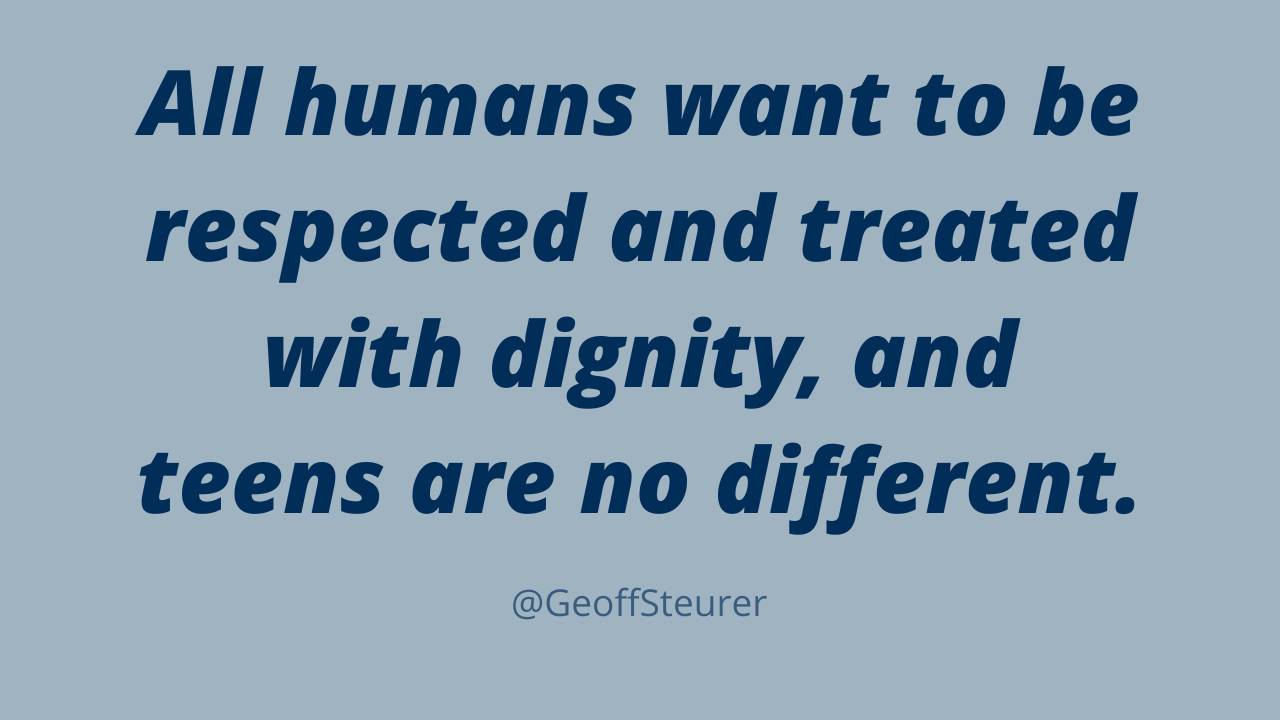
Q&A with Geoff: My Teenage Son Has Depression
Question:
I have a teenage son who is not motivated to do anything. If he were allowed to, he would spend all his time playing video games, watching television, or sleeping. He is often irritable and when asked to do something will respond with a sharp, “I know!” or mumble grumpily under his breath. He often does not turn in homework even if he has completed it. My wife and I know that he is a good kid and we are patiently waiting for him to get past this phase. In a recent discussion with my wife we contemplated the fact that he might suffer from depression. It runs in my family and I have depression as well. How can I tell the difference between a teenage behavior phase and depression? How can I change as a parent to help my son in this situation regardless of the cause?
Answer:
I want you to go back and read the last two questions you asked me. Those questions just about answer your bigger question. The fact that you are open to better understanding your son’s world and also willing to look at yourself as a father expands the solutions available to you and your son.
You say you are no stranger to depression, so you certainly understand how easy it is to be misunderstood when you struggle with depression. I encourage you to continue proceeding carefully with your son so you don’t make a sweeping conclusion about his motives and back him into a corner.
It’s easy to get locked into power struggles with adolescents, especially when it appears they are trying to resist our efforts to help them or direct them. In this gridlocked state, it’s easy to lose perspective and forget that you can have a relationship with your teen outside of the power struggle. In fact, many parents avoid building a relationship with resistant teens for fear they will be giving in to bad behavior or giving up their authority as the parent.
Terry Olsen quoted Stephen Covey and Terry Warner’s famous sentiment that “seeing people as the problem is the problem” when teaching parents about how to navigate challenging scenarios with “difficult” adolescents. He taught that “until we see others in a non-labeling, non-accusatory way, we cannot see the truth about them, and thus we really don’t see the starting point for solutions to real problems.”[ii]
All humans want to be respected and treated with dignity, and teens are no different. In fact, this is really important to them as they transition from the more dependent state of childhood and into the more independent life as a young adult. They have all of the thoughts and feelings of an independent person, but still depend on parents for so many things, including emotional support.
This is why it’s critical to send a clear message that you want to better understand your son as a person and really get where he’s coming from. How is your relationship outside of the school and chores struggle? Do you do things with him so you can better understand how he thinks and the nature of his concerns?
I understand that many teen boys aren’t going to open up about a bunch of feelings and thoughts in a spontaneous rush of self-awareness. However, as you spend time with him and listen to how he talks about his life, he will leave you clues about how he sees himself and the world.
I think you should also open up to him about your own struggles with depression and let him know how it affected you. You don’t need to ask him a million questions about his depression. Instead, let him better understand your story and see how he responds. Chances are, he’ll relate to what you’re saying and feel validated and relieved.
Keep the expectations and structure in place. Even depressed people need to do chores, homework, and participate in family life. However, you may find that as you better understand him as a person, he will feel more willing to participate and you’ll be more flexible as you work to accommodate his struggles. We all want to be understood even when we’re required to do things we don’t always want to do.
It is better to build respect and engender cooperation with your son than raising the intensity and forcing him to comply. Granted, there are situations where you don’t have the time to spend on building cooperation and you simply need them to obey. However, you can spend the rest of the time building the kind of relationship where your son will respect you and be more willing to cooperate.
If he is suffering from a depression that no amount of emotional support and accommodations will solve, then it’s important to get him working with a counselor and possibly a physician who can help him out of the dark hole of depression. As you personally know, it’s a real condition and something that shouldn’t be minimized or written off as regular teen angst.
He’s fortunate to have such an aware and thoughtful father. I have no doubt that as you continue to learn about him and what he needs, you will discover the best ways to connect with him, understand him, and help him move forward out of this difficulty.



